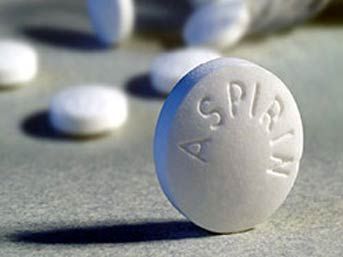Is low-dose aspirin unsafe for heart patients?
 Washington, July 20 : A new study has revealed that even the daily low-dose of aspirin might be harmful for some heart patients due to a common genetic variation.
Washington, July 20 : A new study has revealed that even the daily low-dose of aspirin might be harmful for some heart patients due to a common genetic variation.
The study suggested that common genetic variation in the gene for catechol-O-methyltransferase (COMT) might modify the cardiovascular benefit of aspirin and in some people it might confer slight harm.
Kathryn Hall, PhD, said that this was one of the few cases where it could be identified that a single genetic polymorphism which has a significant interaction with aspirin such that it affects whether or not it protects against cardiovascular disease.
She further explained COMT was a key enzyme in the metabolism of catecholamines, a group of hormones that include epinephrine, norepinephrine, and dopamine, so they wanted to find out if the COMT gene affected people's susceptibility to incident cardiovascular disease such as myocardial infarction or ischemic stroke and also wanted to learn if genetic variation in COMT would influence aspirin's potential benefit.
The authors stressed that the findings would require further research and replication to understand their potential for clinical impact. Nonetheless they noted that given that aspirin was preventively prescribed to millions of individuals and the COMT genetic variant was extremely common, this study underscores the potential importance of individualizing therapies based on genetic profiles.
Joseph Loscalzo, MD, said that what this study suggested was that they could be smarter about the groups of patients that would most likely benefit from aspirin, rather than giving aspirin to all patients with risk factors for heart disease, they need to use modern genomics and genetics to identify those individuals for whom aspirin has the greatest benefit and the lowest risk of adverse effects.
The study is published online in the American Heart Association journal Arteriosclerosis, Thrombosis, and Vascular Biology. (ANI)